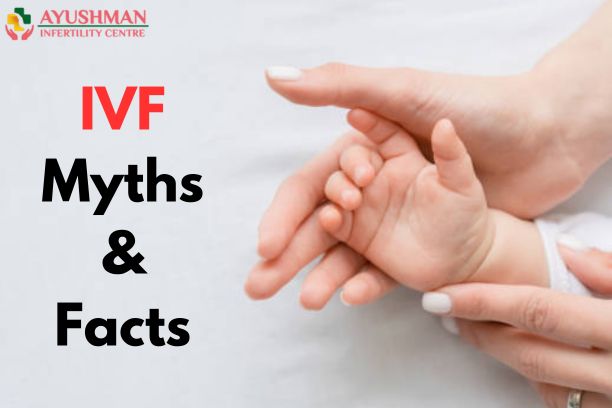
Busting Common IVF Myths And Facts
IVF treatment is gaining popularity as couples are increasingly embracing it. Although the science has been around since the 1800s, the first successful IVF baby was born in 1978. Over the years, advancements in modern medicine and technology have significantly improved IVF. However, public perception of IVF is progressing at a slower pace.
Much of the information about IVF circulating among people may be based on rumors or hearsay. Some individuals might discourage you from considering IVF treatment due to misconceptions or limited knowledge. Conducting thorough research or consulting with an IVF specialist will provide you with accurate information about this remarkable scientific process.
This article aims to debunk common IVF myths and provide you with the real facts.
IVF Myths and Facts About IVF
IVF Myth #1: IVF babies are not normal; they may have genetic defects and health disorders.
Fact: IVF treatment is a process that helps conception happen faster and increases its chances. The growth and development of a fetus and a baby born through IVF are the same as a naturally conceived child. IVF itself does not cause genetic defects or health disorders in the baby. If a baby born through IVF has any conditions or disorders, it’s likely due to inheriting them from one or both parents, not because of IVF.
In IVF pregnancies, fertility specialists may recommend a preimplantation genetic test of the embryo before placing it in the uterus. This test helps identify whether the baby might be prone to developing health conditions or disorders due to a genetic defect in the future.
Additionally, the embryologist selects the healthiest sperm and egg to create healthy embryos in IVF-driven pregnancies.
IVF Myth #2: IVF is a painful process.
Fact: The IVF process itself is not inherently painful. While there may be some slight discomfort during the pickup and implantation phases, it is not typically extremely painful. The level of pain varies from person to person, so your experience during the procedure may differ from someone else’s.
Injections are usually given after the transfer, and if you find regular injections on your arms scary or painful, be prepared for a similar sensation with IVF. However, with newer concepts like the natural cycle, there is no need for painful injections.
IVF Myth #3: IVF works well for women of all ages.
Fact: While IVF treatment is an option for women who are trying to conceive later in life, it doesn’t guarantee success for everyone. Women under 35 have a higher chance of successful conception through IVF compared to older women. As women age, the quantity and quality of their eggs decline.
Some women freeze healthy embryos during their first or previous IVF pregnancies for future attempts. This way, even if their egg reserves are lower in the future, they can still try IVF treatment for a successful conception. However, if a woman hasn’t frozen embryos, the chances of successful conception with her current egg reserves are lower.
Conceiving through IVF is challenging for women above 35, but there’s no absolute assurance of success for women under 35 either. Just like natural conception, IVF cycles may result in unsuccessful pregnancy attempts. The number of embryos to be transferred can be decided after discussing with your doctor.
IVF Myth #4: IVF always results in multiple pregnancies.
Fact: While multiple pregnancies are common with IVF, they don’t happen to everyone. When you consult an IVF specialist, they carefully select the best eggs and sperm for creating embryos. If you have multiple healthy embryos, you have the option to implant more than one embryo in your womb, aiming for multiple babies, or you can choose to freeze the extra embryos for later use.
Having all the embryos successfully implant on the uterine wall results in what is known as multiple pregnancies, but this is not guaranteed to happen in every IVF case.
IVF Myth #5: IVF is the only solution for infertility.
Fact: IVF is not the sole option for couples dealing with infertility. It’s considered when other treatments have been explored or for same-sex couples. Various treatments can improve fertility health, and after successful treatment, natural conception is possible without IVF treatment.
IVF is just one of many options available. It’s particularly helpful in diagnosing and treating the specific causes of infertility. It’s essential to be well-informed, as IVF myths may arise from information shared by friends or family. Seek information from reliable sources and consult with experts in the field.
Ayushman Infertility Centre is a leading IVF center with a state-of-the-art laboratory and a knowledgeable team of fertility experts. Visit their clinic for accurate information about how IVF works and what to expect, ensuring you receive the most precise fertility diagnosis and advice.
Leave a reply
Leave a reply